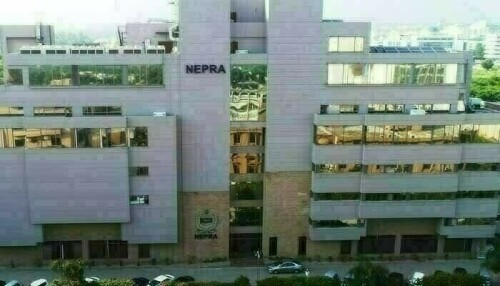Nepra Faces Regulatory Hurdles After Tribunal Ruling on Cold Storage Tariffs
The National Electric Power Regulatory Authority (Nepra) is grappling with a significant legal and regulatory challenge after the Nepra Appellate Tribunal recently issued a verdict regarding the tariff classification of cold storage facilities nationwide.
The Tribunal has instructed Nepra to address promptly any applications submitted by appellants, based on mutual agreements, ensuring that all relevant parties are afforded the opportunity to present their case, in accordance with the law.
In its majority decision on December 23, 2024, Nepra asserted that cold storage facilities do not align with the criteria specified in the consumer-end tariff determinations for industrial supply tariffs. Consequently, all Distribution Companies (Discos), including K-Electric, were directed to classify all cold storages under the commercial tariff category, as previously outlined in the tariff terms and conditions dated July 25, 2022.
Nepra further clarified that the commercial tariff is applicable to offices and establishments engaged in commercial activities. Conversely, the industrial tariff is designated for entities involved in manufacturing, value addition, or goods processing. Nepra emphasized that cold storages primarily serve retail chains, food distributors, and restaurants by storing goods such as fruits, vegetables, dairy, and meat without any processing or transformation, focusing solely on maintaining freshness until sale. Therefore, they do not meet the requirements for industrial classification.
Chairman Waseem Mukhtar stated that the Member (Tariff) was on leave during the decision, so with the Members (Technical) and (Law) dissenting, he used his casting vote as presiding officer under Section 5(4) of the Regulation of Generation, Transmission and Distribution of Electric Power Act, 1997 (XL of 1997) to finalise the decision.
Member (Technical) Rafique Ahmad Shaikh, in his dissenting opinion, contended that cold storages involved in extensive processing, value addition, or long-term preservation, particularly within the agriculture, food, and pharmaceutical sectors, should be categorized under the industrial tariff. He suggested a nuanced approach: cold storages engaged in short-term retail distribution without substantial value addition could remain under the commercial tariff, whereas industrial-scale operations should be granted industrial classification. He also cautioned that a uniform commercial classification could disproportionately affect a crucial sector of the economy.
Member (Law) Amina concurred that the tariff terms mandate manufacturing, value addition, or processing activities for a facility to qualify for industrial rates. However, she posited that cold storages do contribute value by employing advanced technology to maintain the physical, chemical, and nutritional integrity of perishable goods, akin to processing. She also noted that numerous jurisdictions, including the United States (California, New York, Texas), India, the Netherlands, and Poland, recognize cold storage facilities as industrial entities due to their significant energy consumption.
Nepra’s decision was contested by 108 cold storage operators before the Nepra Appellate Tribunal in the case named Javed Iqbal Ch s/o Mushtaq Ahmad Prop M/s Ever-Green Cold, etc. vs. Federation of Pakistan, etc. The Tribunal’s ruling, issued on April 16, 2025, has been communicated to Nepra and three Distribution Companies (Discos) for implementation.
The judgment, endorsed by Tribunal Chairman Zafar Ullah Khan Khakwani and Member (Electricity) Salman, highlights that the appellants challenged Nepra’s December 23, 2024, decision, which dismissed their grievances regarding the reclassification of their tariff from industrial to commercial by LESCO.
During the proceedings, the appellants’ counsel presented a government notification (No.1 (42)/2005-Inv-III of February 6, 2025) from the Ministry of Industries and Production, designating the warehousing sector, including cold storage, as an “industry”. They asserted that this addressed their primary concern, although they still sought reimbursement for excess charges incurred under the commercial tariff.
Nepra’s legal representative conceded that, in light of the notification, the appeal had become moot. Following brief deliberations between both parties, Nepra’s counsel committed that if the appellants submitted formal applications, Nepra would adjudicate them promptly and in compliance with the law, ensuring a fair hearing for all stakeholders.
Consequently, the Tribunal deemed the appeal infructuous but emphasized that Nepra is expected to act expeditiously on any filed applications, adhering to legal protocols and ensuring stakeholder involvement.
Sources indicate that Nepra is now in a precarious situation, particularly given the Tribunal’s attribution of specific commitments to its legal counsel. While a potential appeal against the Tribunal’s decision is under consideration, no final determination has been reached.



Comments (0)
No comments yet. Be the first to comment!
Leave a Comment